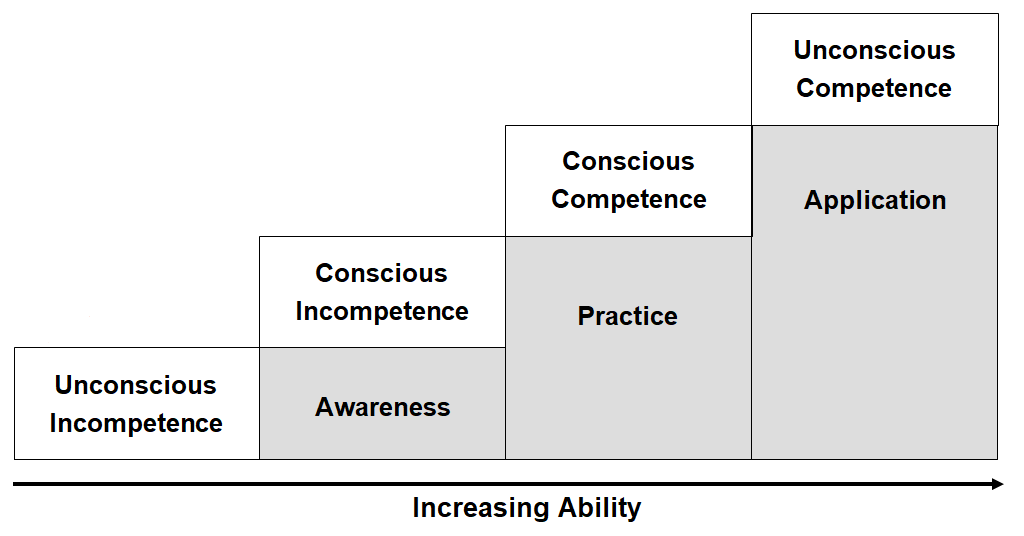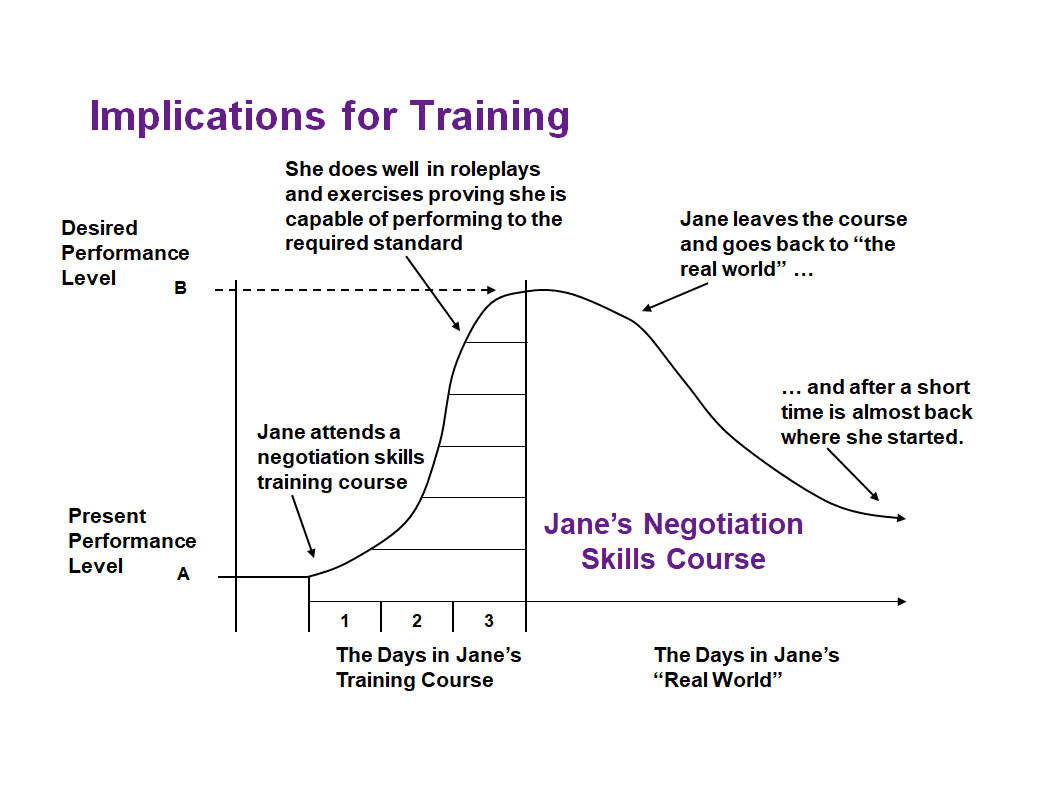Traditionally talked about and accepted in a sporting context, the importance and benefits of workplace coaching are now well appreciated and seen to be a key component of a manager’s job.
A Definition
“Coaching is a process which allows an individual to acquire new skills and knowledge in order to maximise their potential.”
Coaching is:
- About helping others find solutions and set goals rather than telling them what to do
- About listening and being non-judgemental rather than giving advice
- About collaboration
- A way to strengthen teams and improve productivity and morale rather than reinforcing command and control stereotypes
- Often about very specific, performance related issues
- About clarifying goals and creating action plans
The Skill Development Model
The journey from not being skilled at something to becoming proficient at it is captured below in the Skill Development Model and the understanding of its implications to coaching is vital.

The model shows the stages that we have to go through to learn a new skill and the help or interventions we need to progress from one stage to the next.
Stages of The Skill Development Model
Unconscious Incompetence to Conscious Incompetence
The individual becomes aware that they do not possess the skills to complete the task effectively. The manager must help create the awareness that additional skills are necessary or people won't see the need to change behaviour.
Conscious Incompetence to Conscious Competence
By practicing the exact task, the individual becomes more capable of implementing it in the workplace. Managers need to create an environment where there is the ability to practice a new skill and experiment with making mistakes or people won't become comfortable and confident in using it.
Conscious Competence to Unconscious Competence
It is only through application of the task in the workplace that people become competent. After continuous application the task becomes second nature, this is the stage of maximum competence and efficiency. Managers must have processes in place to measure the individual’s application of new skills or there is no obligation to permanently apply them.
Implications for Training
Understanding the skill development process helps explain why so much training investment is wasted. Having seen that only by constant application does someone ‘imbed’ a new skill let’s look at what typically happens when someone attends a training course.

Let’s imagine that Jane attends a three day training course to improve her negotiation skills. Jane is experienced and has been negotiating for five years so not only will she have to learn new skills on the training course, she will have to break old habits if she is to really improve. That’s going to be hard - she’s been doing things ‘her way’ for years. The diagram shown on the previous page illustrates what happens during and after the training course.
This is a familiar, if depressing picture, both for managers who send people on training courses, and for the participants themselves. The training course itself was effective,Jane enjoyed it and her performance on the course proves it - she left enthused and determined to apply the news skills and techniques she learnt. The problem is that back in ‘the real world’ the habits built up over years quickly replace the new skills.
The reason this happens is not surprising when you put the three day training course in the context of the five years that Jane's been a negotiator - it appears as no more than a blip on the radar! Unless something else happens, training on its own is almost certainly not going to have the desired effect.
In order for Jane to feel comfortable enough to use the new skills ‘in anger’, and so make them part of her normal repertoire, she will have to be motivated and supported to do so. Mangers often underestimate the time and effort it takes for an individual, especially one with established patterns of behaviour, to sustain even the slightest behavioural change in the workplace. This is where coaching comes in.
- Prosell offers a program that combines sales training and sales coaching. It is based on recognised research, which tells us that training alone has limited impact and that when supported by skilful coaching, has 74% more chance of being implemented.
- Prosell has resources to deliver these programs across Australia, covering Sydney, Melbourne, Brisbane, Perth, Adelaide and Canberra.
